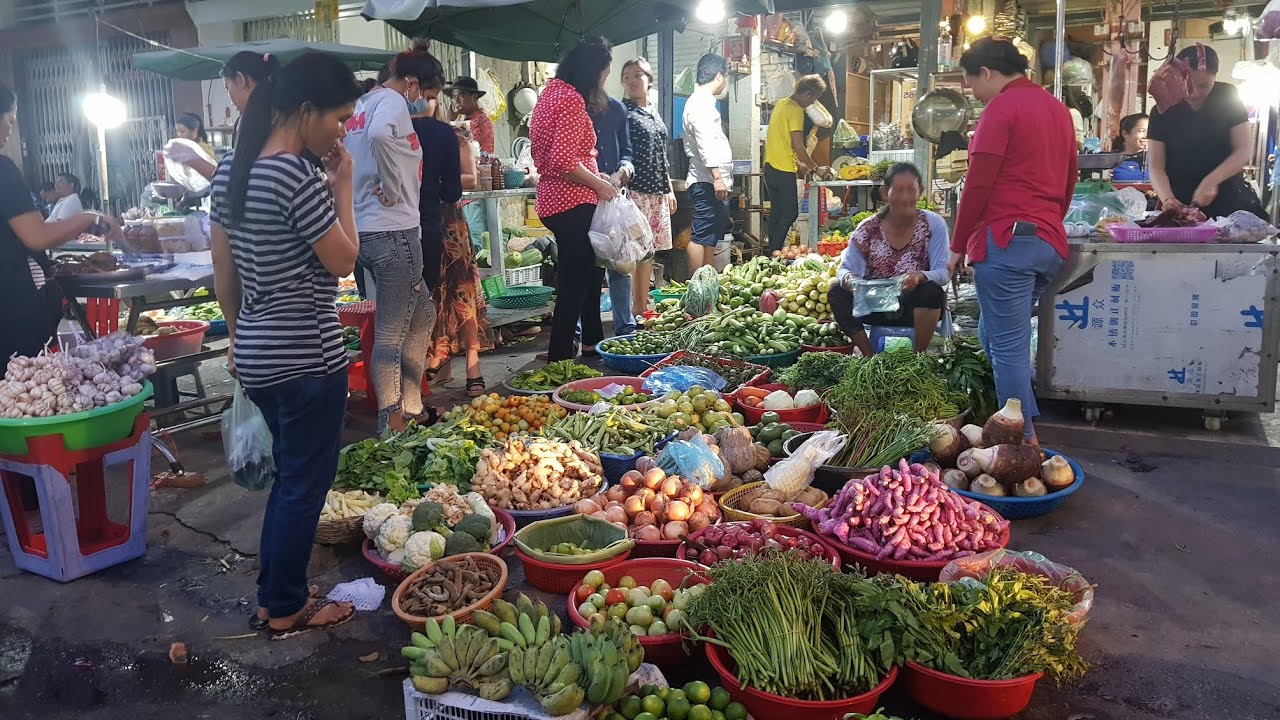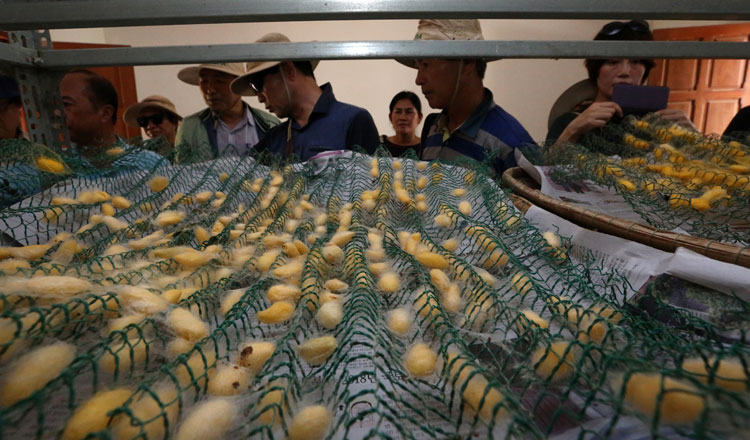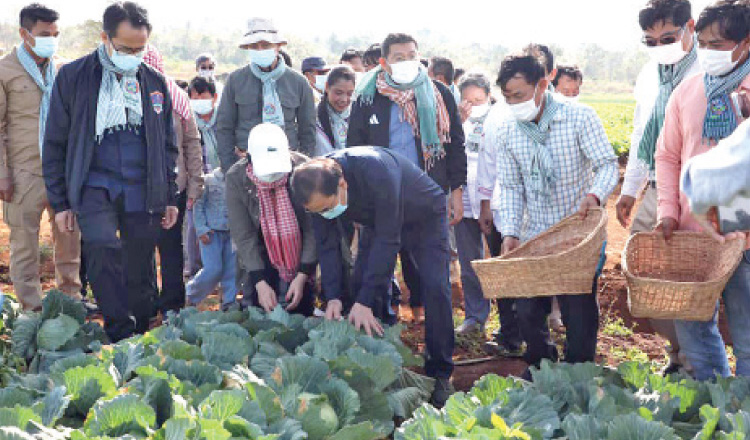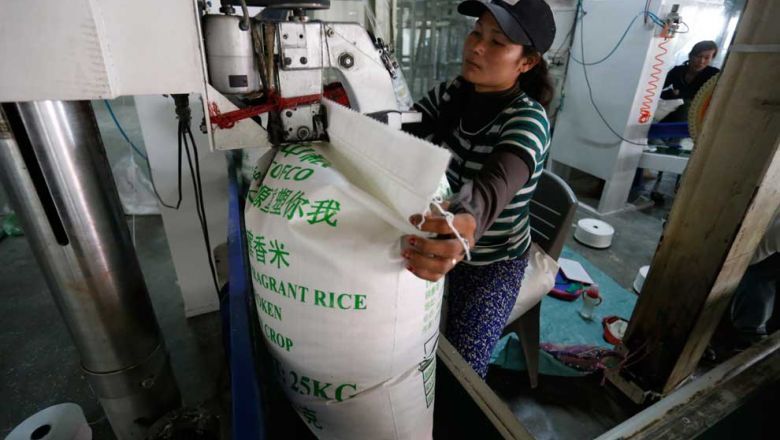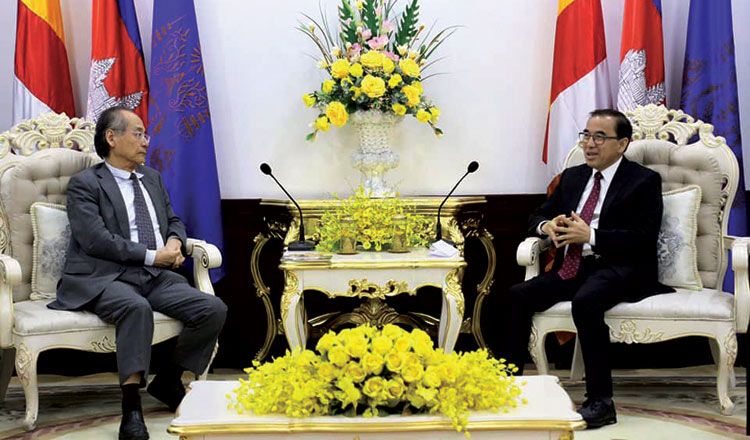Vietnam resume vegetable trade to the Kingdom
Cambodia and Vietnam on April 21 resumed cross-border vegetable trade after the Vietnamese side walked back a ban on Cambodian imports it had imposed just two days earlier.
This comes as Cambodian vegetable supply chains faces snags in transportation and distribution amid a lockdown in Phnom Penh and neighbouring Takhmao town imposed by the government to stave off the spread of the novel coronavirus.
Se Chhun Try, director of the Chrey Thom International Border checkpoint in Kandal province, said Vietnam introduced the ban on April 19 in the wake of the temporary closures of Doeum Kor and nearby Neak Meas markets – together the largest wholesale vegetable hub for Phnom Penh residents – after vendors there contracted Covid-19.
The borders “are now open again to imports, and today [April 21] the Vietnamese side let us know as such on Tuesday afternoon. I’ve already reported this to the provincial governor”, he confirmed.
A daily average of 20 tonnes of assorted vegetables enter the Kingdom through Chrey Thom, according to Chhun Try.
“Vegetables imported from Vietnam are sold wholesale to Cambodians who make their way to the border every morning to distribute on the domestic market,” he said.
Cambodia’s annual demand for vegetables is around one million tonnes, of which the Kingdom can only produce 75-80 per cent, meaning it must import about 20 per cent from neighbouring countries, according to the Ministry of Agriculture, Forestry and Fisheries.
The ministry noted in a statement that Cambodia strives to limit imports to vegetables that are grown in cold areas or are otherwise difficult to cultivate in the Kingdom, or during the rainy season which creates unsuitable conditions for agricultural production.
Bun Sieng, president of Natural Agriculture Village, a local wholesaler of vegetables, told The Post that the lockdown, coupled with the closures of Doeum Kor and Neak Meas markets, has constrained wholesale distribution, impeding vegetables from entering the capital from other provinces.
“I would like to request the relevant authorities to facilitate transport so that vegetables can be shipped to supermarkets in Phnom Penh,” she said.
The ministry admitted that restrictive measures had made it difficult to bring vegetables to the capital, but affirmed that there is no shortage, stressing that growers are toiling the fields for harvest.
It did, however, note a lack of “safe vegetables” – or those with reduced dependence on chemicals and free of microbiological hazards – in stock at specialist stores and supermarkets.
Centre for Policy Studies director Chan Sophal on April 21 predicted a major release of pent-up demand for fresh vegetables from lockdown-weary residents after “a week or two” of eating instant noodles, canned fish and other dried foodstuffs.
On his official Facebook page, Sophal called for the introduction of a line of officially-sanctioned tuk-tuks to peddle vegetables, fish and meats to customers in restricted areas.
“I believe the authorities should allow such traders to move freely. Authorities should set up temporary wholesale markets, aside from the one in Takhmao town, so that traders can buy goods to sell in the villages and provide an avenue for farmers to sell vegetables,” he said, referring to the temporary wholesale vegetable market set up in the 2ha Kandal Provincial Football Stadium in Takhmao on April 18. Phnom Penh Post

